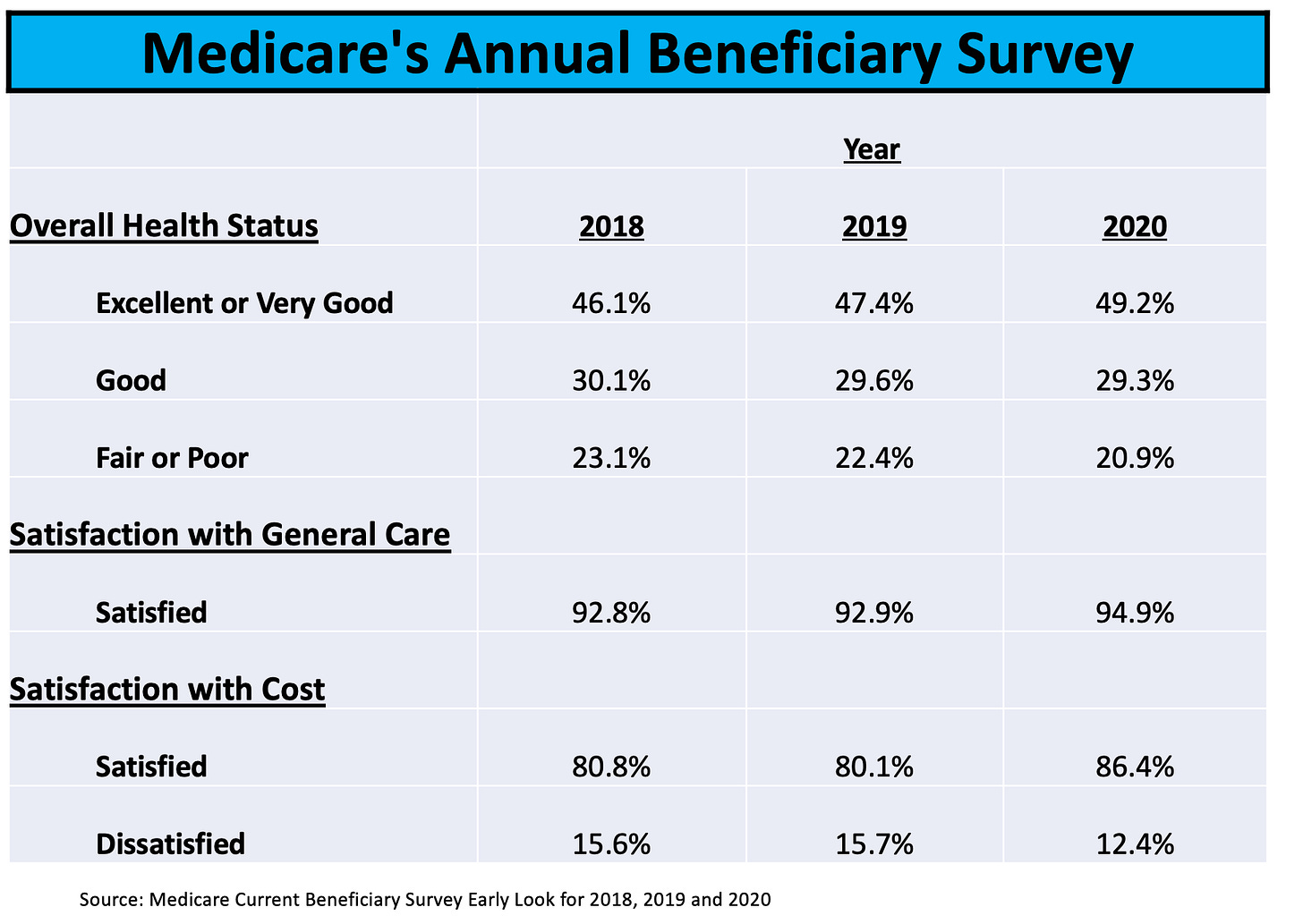Our resilient seniors
Medicare beneficiaries during pandemic year 1 reveal upbeat attitudes on personal health, access and costs
Every year, the Centers for Medicare and Medicaid Services surveys Medicare beneficiaries to see how well they’re doing and gather their thoughts about the program. Most years, the survey receives little media attention since it routinely reflects a high degree of satisfaction with the taxpayer-financed service and few problems gaining access to physicians.
The biggest concern raised by the survey involves the cost of co-pays and deductibles for hospital and physician services and the cost of services not covered by Medicare like eyeglasses and hearing aides. These costs historically posed a problem for about one in seven people in the program.
The 2020 survey, which was released last week, is notable because it provided the first snapshot of attitudes expressed during the first year of the pandemic. With headlines about mounting deaths among seniors dominating the news and routine access to care facing numerous roadblocks — not the least of which was widespread cancellation of discretionary procedures like cataract surgeries or knee replacements — you’d think concern about health status would have taken a nose dive.
Just the opposite occurred. Among all people on Medicare (about 80% are 65 or older with the rest either disabled or on dialysis), those claiming their overall health status was very good or excellent jumped nearly two percentage points to almost half of all seniors compared to 2019. The share reporting only fair or poor health status in 2020 fell to 20.9%, down from 22.4% the previous year.
Seniors and people with disabilities also expressed rising satisfaction with the care they received in year one of the pandemic. That share rose to an impressive 94.9%, two percentage points higher than the scores the program received the previous two years. Satisfaction about how easy it was to access a physician’s care (not shown in chart) actually rose two-and-a-half percentage points to 95.5% in 2020 from 2019. Go figure.
And, in perhaps the most surprising finding in the survey, dissatisfaction with rising costs actually fell from 15.7% in 2019 to 12.4% in 2020, a drop of more than three percentage points. That one in seven now is down to one in eight. This decline came despite the fact that Medicare beneficiaries without supplemental coverage (about 10% of all seniors) were on the hook for co-pays and deductibles if hospitalized with COVID-19.
This is only a first snapshot of the survey’s overall results. Once researchers get their hands on the larger files, it will be interesting to see if these trends hold up for Blacks, Hispanics and poor people. Last week, the Commonwealth Fund released a survey showing “one in four Black and Latinx/Hispanic adults age 60 and older reported that they have been treated unfairly or have felt that their health concerns were not taken seriously by health professionals because of their racial or ethnic background.”
Still, according to the Centers for Disease Control and Prevention, seniors accounted for 81% of the 385,000 deaths from COVID-19 during 2020 and a disproportionate share of the hospitalizations. In the face of those daunting statistics, it would appear many seniors, preparing for another day at home, looked in the mirror each morning and decided they were feeling pretty good that day. At least they didn’t have COVID.





Good news.